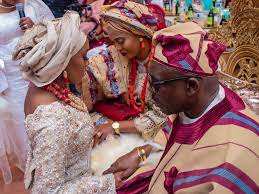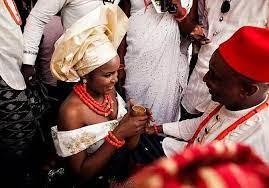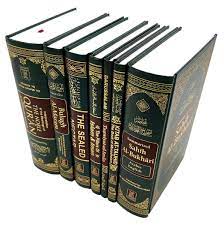
Marriage is a social institution that has existed in various forms throughout human history, playing a vital role in shaping societies and providing stability to families. Traditional marriage refers to a longstanding cultural and religious concept of matrimony that encompasses certain customs, values, and expectations.
While the definition of marriage has evolved over time, understanding the essence of traditional marriage sheds light on its historical significance, cultural variations, and enduring relevance.
Traditional marriage can be traced back to ancient civilizations, where it served as a means of social organization, family alliances, and the continuation of lineage. In these societies, marriage was often a union between families rather than individuals, emphasizing communal and economic considerations. For example, in many cultures, marriages were arranged by parents, and the primary goal was to forge beneficial alliances, consolidate wealth, and maintain social status.
Religion has played a significant role in shaping the concept of traditional marriage. Across various faiths, marriage is regarded as a sacred union, a covenant between two individuals before their deity or deities. Religious institutions have established guidelines and rituals that outline the expectations, responsibilities, and obligations within a marital relationship.
In many cultures, traditional marriage ceremonies incorporate customs and traditions that have been passed down through generations. These rituals often symbolize unity, commitment, and the acceptance of new familial ties. Examples include exchanging rings, vows, and sharing religious blessings or prayers.
The Yoruba people, one of the largest ethnic groups in Nigeria, have a rich cultural heritage that encompasses various aspects of life, including marriage customs and traditions. The Yoruba traditional marriage, known as "Igbe yawo," is a significant event that brings together families, communities, and the couple embarking on a lifelong journey together.
In this article, we will explore the intricate details of Yoruba traditional marriage, its customs, rituals, and the deep cultural significance it holds.
Introduction to Yoruba Traditional Marriage
The Yoruba traditional marriage is a sacred union between a man and a woman, recognized and celebrated within the Yoruba community. It is more than just the coming together of two individuals; it represents the union of families, clans, and even generations. The marriage ceremony is a joyous occasion that involves elaborate rituals, colorful attire, and a strong emphasis on cultural values.
The Role of Families and Matchmaking
In Yoruba culture, marriage is not solely a decision made by the couple; it involves the families of the bride and groom. The process often begins with a matchmaking phase, where family members, close friends, or even professional matchmakers help identify potential partners. Compatibility, family background, and social status are essential factors considered during this phase.
Introduction and Formal Proposal
Once a suitable match is found, the groom's family initiates the marriage process by formally introducing the groom and his intentions to the bride's family. This introduction usually takes place in the bride's family home, where the groom's family presents gifts, including kolanuts, alcoholic beverages, and sometimes money, to the bride's family. This gesture signifies the seriousness and commitment of the groom's family to the marriage proposal.
The Introduction Ceremony (Isele)
The introduction ceremony, known as "Isele" in Yoruba, is a formal gathering where both families come together to meet, interact, and further discuss the marriage proposal. During this event, the bride and groom exchange rings as a symbol of their commitment and acceptance of the union. Prayers and blessings are offered, and the families use this opportunity to establish a rapport and foster unity.
Engagement and Dowry (Eru Iyawo)
Following the introduction ceremony, the engagement ceremony, known as "Eru Iyawo," is the next important step. It involves the exchange of gifts and the payment of dowry by the groom's family to the bride's family.
The dowry, also known as "Ikan-Idana" or "Ego Iyawo," usually consists of various items such as money, clothes, jewelry, and household goods. The dowry symbolizes the groom's ability to take care of the bride and also serves as a gesture of appreciation to the bride's family.
Pre-wedding Customs and Festivities
In the weeks leading up to the wedding, the families of the bride and groom engage in several customs and festivities to prepare for the main event. This includes the traditional engagement party, where friends and family members celebrate the upcoming union. Other activities may include traditional ceremonies, such as the "Eru Iyawo" cooking party, where the bride's female relatives teach her cooking skills and marital responsibilities.
Traditional Wedding Ceremony (Igbeyawo)
The traditional wedding ceremony, known as "Igbeyawo," is the pinnacle of the Yoruba traditional marriage. It is a vibrant, colorful, and culturally significant event that showcases the richness of Yoruba traditions. The ceremony takes place in the presence of family, friends, and well-wishers who gather to witness the union and celebrate with the couple.
During the ceremony, the bride and groom are adorned in traditional Yoruba attire. The bride wears a richly embroidered and beaded outfit called "Iro and Buba," complemented by ornate jewelry, gele (headgear), and accessories. The groom typically wears a flowing agbada or buba and sokoto, accompanied by a cap or fila.
Rituals and Symbolism
The Yoruba traditional wedding ceremony is steeped in symbolism and rituals that reflect the cultural values and beliefs of the Yoruba people. Some of these rituals include:
The tying of the bride and groom's wrists with a white cloth or thread to symbolize unity and togetherness.
The breaking of kolanuts by the bride and groom, which signifies the breaking of barriers and the willingness to share life's challenges.
The pouring of libation by the elder family members to seek blessings from the ancestors and the Supreme Being (Olodumare).
The exchange of vows and commitment by the couple, expressing their promises and intentions to honor and cherish each other.
Feasting, Music, and Dance:
No Yoruba traditional wedding is complete without a grand feast, music, and dance. Traditional Yoruba dishes, such as jollof rice, pounded yam, egusi soup, and assorted meats, are prepared and shared among the guests. Live music performances featuring Yoruba traditional instruments, such as talking drums, bata drums, and shekere, create a festive atmosphere, while guests participate in vibrant and energetic dances like the "Bata" and "Agidigbo."
Conclusion and Modern Adaptations
The Yoruba traditional marriage, Igbe yawo, is a beautiful celebration of love, unity, and cultural heritage. While the core customs and rituals remain intact, modern adaptations have also found their way into Yoruba weddings. Some couples choose to incorporate elements from other cultures or opt for a fusion of traditional and contemporary styles.
Regardless of the adaptations, the Yoruba traditional marriage continues to serve as a symbol of the Yoruba people's pride, identity, and commitment to preserving their rich cultural heritage. It is a testament to the enduring values and traditions that have stood the test of time and continue to unite families and communities.
In conclusion, the Yoruba traditional marriage, Igbe yawo, is an elaborate and significant event that reflects the cultural values, beliefs, and traditions of the Yoruba people. It is a celebration of love, unity, and the joining of two families.
The marriage customs and rituals embedded in this cultural heritage have survived for generations, and they continue to be cherished and celebrated today.






















